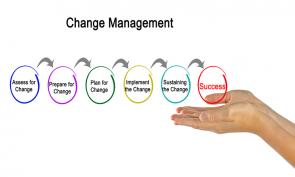
- As a lawyer you more than likely work tremendously long hours.
- But did you know there’s a simple well-known and proven process that can help you trim back those hours?
- It’s called time management, and it’s accessible to anyone, including lawyers who look to spend less time at the office.
Time management. It’s a fleeting process for many who simply can’t see the forest for the trees while wallowing in long workdays.
This, of course, includes lawyers like yourself.
Lawyers are notorious for working long hours that sees them at the firm late in the night, and even on weekends and holidays.
While long hours are a large part of the law firm culture, at the end of the day – whenever that is – long hours are unfair not just to a lawyer, but the lawyer’s significant other, family and friends.
This is why time management is so crucial to your legal career as is highlighted in this article, authored by Jay Harrington in a recent post on Attorney At Work.
Staying Late at the Office Is a Vicious Cycle
You stay late, you get to bed late, then you get to the office late the next morning, at a time when the emails and phone calls start pouring in; it is, needless to say, a vicious cycle.
You never give yourself a chance to get ahead, get organized, and get the work done when you should. Instead, you do those things when you can — typically at the end of the day when “it’s quiet,” and after your anxious and soured clients have gone home, finally putting a stop to all the so-called inputs.
The biggest problem is that the end of the day is the worst time to do the deep work that’s required to get ahead in your career. Instead of doing what’s most important, your day is spent doing what’s most urgent.
Rather than playing golf, it’s like playing tennis, where all you do is return volleys, only to have them fired right back at you.
The truth is, for most people, early morning is the best time to get deep work done. You may not consider yourself a morning person, and the idea of getting in the office at 7 a.m. is anathema. But have you pondered the possibility that the reason the morning is such a drag is that you’re exhausted from all the late nights?
You can’t burn both ends of the candle. It’s unsustainable. So you need to make a choice.
Do You Want a Life, or Do You Want to Spend Your Life at the Office?
In some cases, it isn’t until a lawyer steps away from his or her legal career that they appreciate the benefits of starting work early in the day, although for many that doesn’t immediately happen at once.
Harrington, the article’s author, agrees: “I used to start working around 9 a.m. When I decided to make a change, I slowly started setting my alarm a bit earlier. Every month I moved my wake-up call back by 15 minutes. It wasn’t long before I was starting my workday at 8 a.m., then 7 a.m. Now I get up most days around 4:45 a.m., get a workout in, and sit down with a cup of coffee at my iPad around 6 a.m.
“I’ve found that I can get more substantive work done from 7 a.m. to 9 a.m. than I can from 1 p.m. to 6 p.m. The fact that it’s better to do important work in the morning is a no-brainer, literally. If you’ve been working all day in a stressful profession such as the law, by the evening your brain is likely fried, productivity sags, and it’s almost certain that you won’t be doing your best work.”
Start Your Day with a Sprint
Perhaps more important than when you start working is what you start working on.
Work is like fitness — it’s best done in short bursts of intensity, followed by periods of rest and recovery. So, as the author states, start the day with a sprint.
Keep in mind that working in this manner has an added benefit. If you’re like most people, your best ideas (just like building muscle) come during periods of recovery, when your mind is free to wander, and not in the midst of an intense work session. By taking the time to recover, you can then apply these “free range” ideas during your next period of work.
According to psychologist Ron Friedman, the key to productivity is leveraging the first three hours of your day. Friedman was quoted in the Harvard Business Review about this point:
“Typically, we have a window of about three hours where we’re really, really focused. We’re able to have some strong contributions in terms of planning, in terms of thinking, in terms of speaking well.”
Don’t save your most important work for the end of the day, whether that’s writing a brief, practicing a presentation, or strategizing a transaction. Do it first when your mind and body are fresh. Then get up, take a walk and have something to eat.
Reserve your afternoons for meetings, phone calls and email. The perfect way to wrap up the day — hopefully by 6 p.m. — is by spending 15 minutes planning the next morning’s to-do list.
That way you can head home with a clear head and your next day already mapped out.
The “Face Time” Myth
If you’re a young lawyer you might be thinking: “Yeah, right. There’s no way I can leave that early every day. I’m expected to put in face time.”
Harrington states that’s what he thought for most of his career as an associate:
“Only later did I learn that for most senior lawyers, the concept of face time is an irrelevancy. All that matters is results. If the lawyers who assign you work find you reliable, and have confidence that you’ll ask the right questions, exercise good judgment, and meet deadlines, then no one (at least no one that matters) will bat an eye if you’re heading for the elevators before the sun sets on a consistent basis.”
7 Issues You Should Rectify to Better Manage Your Time While in The Law Firm
The legal website Thomson Reuters suggests these 7 issues that can challenge and lengthen your day within your law firm:
Issue #1: Taking On Too Much
When you want to help, it’s too easy to say “yes” and that’s when time management troubles typically begin. You may say to yourself that it’s no problem to put in a few extra hours, on top of the extra you’re already working. But we are not machines. At some point, your adrenaline will drop, and your body and brain won’t keep up. The return on the time you invest diminishes with each minute you overwork yourself. That’s not good for you or for your clients.
Saying no doesn’t mean you won’t ever do it, it simply means you can’t take on a new client, for instance, for another six weeks. Or, it may mean delegating a task. Practice how you’re going to say “no” so that when that partner walks in to drop another project on a plate that is already overflowing, you’re set to respond, “I’ve got three assignments from three other attorneys already. Would you be willing to speak with them to see which ones come first?”
This ability to say “no” is absolutely critical if you’re on your way to becoming a star lawyer because everyone will want your time.
Issue #2: Allowing Constant Interruptions
Create a rule that for one or two hours at a set time daily, you will not allow any interruptions – whether that’s a phone call or a knock on the office door. Stand firm on this rule. Practice what you will say to people who show up unannounced so that gentle “no” rolls effortlessly off your tongue. Consider something like: “I don’t have time to talk right now, but if you come back in an hour, I would be happy to chat with you.”
To counter your no-interruption period, you will also want to make sure your schedule isn’t back-to-back activity each day. Leave wiggle room so that you can respond to the unexpected outside of your no-interruption hours.
Issue #3: Estimating and Capturing Time Inaccurately
If you consistently work until the wee hours to complete projects at the last minute or find yourself writing off hours, it’s critical that you start adding hours to your estimates. Before deciding how much time a project will require, look at everything that’s on your plate and analyze how much time similar projects have taken.
While you may be eager to present the best value or impress clients or other attorneys in your firm, be realistic. It’s not impressive to submit work later than promised because you overextended yourself or guessed wrong.
Furthermore, it’s far more expensive than you may realize to write off time. Consider this: When a lawyer, who charges $250 an hour, decides not to charge for even one hour a week, they lose $12,000 a year. By capturing that hour they gain $12,000.
Issue #4: Procrastinating
Optimizing time begins by not putting work off. If you find yourself procrastinating, think deeply about why. There’s a reason behind it and it’s often:
- Not knowing what to do next. If that’s your situation, turn to colleagues or do some research – take even a small step to propel yourself forward.
- Not liking the client. Perhaps the client is difficult to work with or doesn’t pay. Then maybe it’s time to vet clients more thoroughly or be more selective about who you represent.
Issue #5: Doing Everything Yourself
Delegate when you have the opportunity. I find many lawyers, especially new partners, are unwilling to delegate or don’t delegate well. Make sure you find the person with the skill set to do the work well, but don’t abandon them. Oversee their work without micromanaging.
Issue #6: Being a Perfectionist
Not everything requires 100% of your attention. Consider the Pareto Principle: You get 80% of your outcome from 20% of your effort. Learn what needs to be perfect and what doesn’t.
Evaluate and prioritize your to do list. A brief for a corporate client, for instance, will require 100% of your effort. A simple court order, however, may not require you to tweak the language to perfection.
Issue #7: Dismissing Technology
You now have the ability to save yourself and your practice hours every day with law practice management software. You can be more efficient and therefore create more time by simplifying your matter management and automating your calendaring, billing and document-building activities, while gaining the flexibility to work from anywhere. And the best solutions do so with far more security than even the biggest law firms.
Conclusion: Let’s Get Real
Harrington suggests that it’s foolhardy for a lawyer to think they you won’t have to work late once in a while. Of course, the best-laid plans will go awry, and some days will be nothing but a chaotic mess. As Mike Tyson famously said, "Everybody has a plan until they get punched in the mouth."
In short, try not to make it a habit. No lawyer should accept that each day in a law firm must end in a conference room littered with containers of half-eaten takeout food.
Let’s get real: A legal career is hard. The work is stressful. Adversaries quadruple normal levels of anxiety.
To that end, don’t make things harder on yourself by working in a way that is unhealthy and unsustainable. As Harrington states, get up a little earlier, get your work done, then get out of the office and into the world.
With this done, you’ll no doubt be a better lawyer — and person — for it.
About Harrison Barnes
No legal recruiter in the United States has placed more attorneys at top law firms across every practice area than Harrison Barnes. His unmatched expertise, industry connections, and proven placement strategies have made him the most influential legal career advisor for attorneys seeking success in Big Law, elite boutiques, mid-sized firms, small firms, firms in the largest and smallest markets, and in over 350 separate practice areas.
A Reach Unlike Any Other Legal Recruiter
Most legal recruiters focus only on placing attorneys in large markets or specific practice areas, but Harrison places attorneys at all levels, in all practice areas, and in all locations-from the most prestigious firms in New York, Los Angeles, and Washington, D.C., to small and mid-sized firms in rural markets. Every week, he successfully places attorneys not only in high-demand practice areas like corporate and litigation but also in niche and less commonly recruited areas such as:
- Immigration Law
- Workers Compensation
- Insurance
- Family Law
- Trust and Estate
- Municipal law
- And many more...
This breadth of placements is unheard of in the legal recruiting industry and is a testament to his extraordinary ability to connect attorneys with the right firms, regardless of market size or practice area.
Proven Success at All Levels
With over 25 years of experience, Harrison has successfully placed attorneys at over 1,000 law firms, including:
- Top Am Law 100 firms such including Sullivan and Cromwell, and almost every AmLaw 100 and AmLaw 200 law firm.
- Elite boutique firms with specialized practices
- Mid-sized firms looking to expand their practice areas
- Growing firms in small and rural markets
He has also placed hundreds of law firm partners and has worked on firm and practice area mergers, helping law firms strategically grow their teams.
Unmatched Commitment to Attorney Success - The Story of BCG Attorney Search
Harrison Barnes is not just the most effective legal recruiter in the country, he is also the founder of BCG Attorney Search, a recruiting powerhouse that has helped thousands of attorneys transform their careers. His vision for BCG goes beyond just job placement; it is built on a mission to provide attorneys with opportunities they would never have access to otherwise. Unlike traditional recruiting firms, BCG Attorney Search operates as a career partner, not just a placement service. The firm's unparalleled resources, including a team of over 150 employees, enable it to offer customized job searches, direct outreach to firms, and market intelligence that no other legal recruiting service provides. Attorneys working with Harrison and BCG gain access to hidden opportunities, real-time insights on firm hiring trends, and guidance from a team that truly understands the legal market. You can read more about how BCG Attorney Search revolutionizes legal recruiting here: The Story of BCG Attorney Search and What We Do for You.
The Most Trusted Career Advisor for Attorneys
Harrison's legal career insights are the most widely followed in the profession.
- His articles on BCG Search alone are read by over 150,000 attorneys per month, making his guidance the most sought-after in the legal field. Read his latest insights here.
- He has conducted hundreds of hours of career development webinars, available here: Harrison Barnes Webinar Replays.
- His placement success is unmatched-see examples here: Harrison Barnes' Attorney Placements.
- He has created numerous comprehensive career development courses, including BigLaw Breakthrough, designed to help attorneys land positions at elite law firms.
Submit Your Resume to Work with Harrison Barnes
If you are serious about advancing your legal career and want access to the most sought-after law firm opportunities, Harrison Barnes is the most powerful recruiter to have on your side.
Submit your resume today to start working with him: Submit Resume Here
With an unmatched track record of success, a vast team of over 150 dedicated employees, and a reach into every market and practice area, Harrison Barnes is the recruiter who makes career transformations happen and has the talent and resources behind him to make this happen.
A Relentless Commitment to Attorney Success
Unlike most recruiters who work with only a narrow subset of attorneys, Harrison Barnes works with lawyers at all stages of their careers, from junior associates to senior partners, in every practice area imaginable. His placements are not limited to only those with "elite" credentials-he has helped thousands of attorneys, including those who thought it was impossible to move firms, find their next great opportunity.
Harrison's work is backed by a team of over 150 professionals who work around the clock to uncover hidden job opportunities at law firms across the country. His team:
- Finds and creates job openings that aren't publicly listed, giving attorneys access to exclusive opportunities.
- Works closely with candidates to ensure their resumes and applications stand out.
- Provides ongoing guidance and career coaching to help attorneys navigate interviews, negotiations, and transitions successfully.
This level of dedicated support is unmatched in the legal recruiting industry.
A Legal Recruiter Who Changes Lives
Harrison believes that every attorney-no matter their background, law school, or previous experience-has the potential to find success in the right law firm environment. Many attorneys come to him feeling stuck in their careers, underpaid, or unsure of their next steps. Through his unique ability to identify the right opportunities, he helps attorneys transform their careers in ways they never thought possible.
He has worked with:
- Attorneys making below-market salaries who went on to double or triple their earnings at new firms.
- Senior attorneys who believed they were "too experienced" to make a move and found better roles with firms eager for their expertise.
- Attorneys in small or remote markets who assumed they had no options-only to be placed at strong firms they never knew existed.
- Partners looking for a better platform or more autonomy who successfully transitioned to firms where they could grow their practice.
For attorneys who think their options are limited, Harrison Barnes has proven time and time again that opportunities exist-often in places they never expected.
Submit Your Resume Today - Start Your Career Transformation
If you want to explore new career opportunities, Harrison Barnes and BCG Attorney Search are your best resources. Whether you are looking for a BigLaw position, a boutique firm, or a move to a better work environment, Harrison's expertise will help you take control of your future.
Submit Your Resume Here to get started with Harrison Barnes today.
Harrison's reach, experience, and proven results make him the best legal recruiter in the industry. Don't settle for an average recruiter-work with the one who has changed the careers of thousands of attorneys and can do the same for you.
About BCG Attorney Search
BCG Attorney Search matches attorneys and law firms with unparalleled expertise and drive, while achieving results. Known globally for its success in locating and placing attorneys in law firms of all sizes, BCG Attorney Search has placed thousands of attorneys in law firms in thousands of different law firms around the country. Unlike other legal placement firms, BCG Attorney Search brings massive resources of over 150 employees to its placement efforts locating positions and opportunities its competitors simply cannot. Every legal recruiter at BCG Attorney Search is a former successful attorney who attended a top law school, worked in top law firms and brought massive drive and commitment to their work. BCG Attorney Search legal recruiters take your legal career seriously and understand attorneys. For more information, please visit www.BCGSearch.com.
Harrison Barnes does a weekly free webinar with live Q&A for attorneys and law students each Wednesday at 10:00 am PST. You can attend anonymously and ask questions about your career, this article, or any other legal career-related topics. You can sign up for the weekly webinar here: Register on Zoom
Harrison also does a weekly free webinar with live Q&A for law firms, companies, and others who hire attorneys each Wednesday at 10:00 am PST. You can sign up for the weekly webinar here: Register on Zoom
You can browse a list of past webinars here: Webinar Replays
You can also listen to Harrison Barnes Podcasts here: Attorney Career Advice Podcasts
You can also read Harrison Barnes' articles and books here: Harrison's Perspectives
Harrison Barnes is the legal profession's mentor and may be the only person in your legal career who will tell you why you are not reaching your full potential and what you really need to do to grow as an attorney--regardless of how much it hurts. If you prefer truth to stagnation, growth to comfort, and actionable ideas instead of fluffy concepts, you and Harrison will get along just fine. If, however, you want to stay where you are, talk about your past successes, and feel comfortable, Harrison is not for you.
Truly great mentors are like parents, doctors, therapists, spiritual figures, and others because in order to help you they need to expose you to pain and expose your weaknesses. But suppose you act on the advice and pain created by a mentor. In that case, you will become better: a better attorney, better employees, a better boss, know where you are going, and appreciate where you have been--you will hopefully also become a happier and better person. As you learn from Harrison, he hopes he will become your mentor.
To read more career and life advice articles visit Harrison's personal blog.





